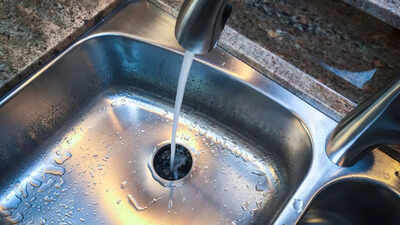ARTICLE AD BOX

Pouring the wrong things down the sink may seem harmless, but it can quickly turn into a costly mistake. Instead of vanishing, many items build up inside your pipes or travel further to cause major blockages in drains and sewers.
Substances like grease, oils, and even small food scraps can harden, swell, or stick together, leading to slow drains, unpleasant smells, and expensive plumbing repairs. Being mindful of what you put down the sink is one of the simplest ways to protect your home’s pipes. Here are ten items you should always keep out of the sink and the reasons why.
What not to put down the kitchen sink to prevent blockages

Pasta and noodles
Pasta and noodles may look harmless when rinsed off plates, but they swell up when exposed to water.
Even tiny scraps can expand inside pipes, trapping other debris and slowing the flow of water. Over time, they create sticky blockages that are tricky to clear. Always scrape leftovers into the bin or compost instead of washing them away.
Rice
Like pasta, rice absorbs water and expands. The grains often slip past sink strainers, but once inside the pipes, they clump together and form a thick paste. This paste catches on pipe surfaces, creating stubborn blockages.
Whether raw or cooked, rice should always go in the bin, not the sink.
Flour

When flour mixes with water, it doesn’t dissolve—it turns into a glue-like substance. This sticky mixture coats pipes, hardens over time, and traps other waste moving through your plumbing. It’s one of the easiest ways to cause a complete blockage without realising. Dispose of leftover flour in the bin to protect your drains.
Honey
Honey seems harmless because it’s liquid, but it is thick and sticky enough to cling to pipes.
Worse, it crystallises over time, hardening into rough lumps that slow drainage and trap food scraps. Scraping honey jars into the bin rather than rinsing them out in the sink can prevent this hidden problem.
Custard
Thick and creamy desserts like custard might pour easily down the drain when hot, but as they cool, they act like fats and oils. The creamy residue coats pipes, congeals, and reduces water flow. Once stuck, custard is difficult to flush away, so it’s best to dispose of leftovers in the bin instead.
Eggshells
Many people assume eggshells are biodegradable and safe for drains, but that’s not the case. Their sharp edges catch easily on other waste, while the small fragments settle in U-bends. Over time, they build up into a gritty, sand-like layer that blocks water. Eggshells are better placed in compost bins, where they can break down naturally.
Fats, oils and butter
Fats, oils, butter, and grease are the biggest culprits behind blocked drains.
They pour away as liquids but cool and harden inside pipes, forming thick coatings. This sticky residue traps food scraps and creates fatbergs that water companies spend millions clearing. Always collect oils and fats in a sealed container and throw them in the bin.
Cream-based drinks
Cream liqueurs and other dairy-based drinks may look harmless, but they contain the same fatty content that solidifies in drains. Once they thicken, they contribute to fat build-up inside pipes, making blockages worse.
If you need to dispose of leftover cream drinks, pour them into the bin instead of the sink.
Fruit stickers
Small fruit and vegetable stickers are often overlooked, but they’re made from plastic or synthetic materials that do not dissolve in water. They easily stick to pipes or wastewater equipment, causing blockages and environmental damage. Always peel off and bin stickers before washing your produce.
Coffee grounds

Coffee grounds are one of the most common sink blockages. They clump together when wet and solidify into stubborn lumps that don’t break down.
Even small amounts washed down daily can build up into a thick, immovable mass. The best way to dispose of grounds is by composting them or binning them directly.
How to protect your kitchen pipes and keep them lasting longer
If you accidentally wash the wrong substance down the sink, you may still be able to prevent damage. Running hot water mixed with washing-up liquid can sometimes help flush fats and oils before they harden. Cold water, on the other hand, will only make blockages form more quickly.
For everyday prevention, sink strainers, sealed fat containers, and scraping plates thoroughly before washing are simple habits that save money and stress in the long run.Blocked sinks don’t just cause inconvenience, they also lead to costly plumbing repairs and, in cities, contribute to sewer fatbergs. By keeping these ten items out of your sink, you’ll protect your home, reduce smells, and help keep water systems flowing freely.Also Read: 8 things you should never clean with vinegar



.png)
.png)
.png)
















 2 hours ago
3
2 hours ago
3








 English (US) ·
English (US) ·